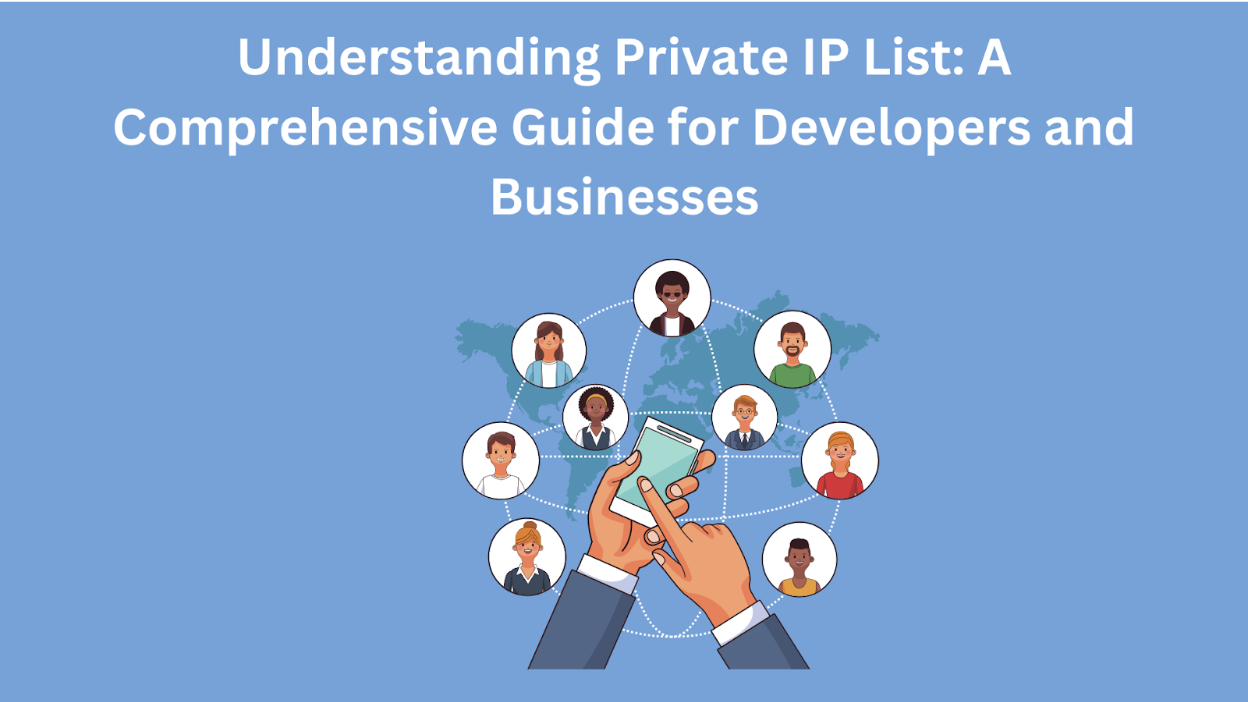Understanding IP addresses is crucial in the world of networking. Private IP addresses play a significant role in this ecosystem, serving as unique identifiers for devices within a local network. In this blog post, we'll delve into the concept of private IP addresses, their importance, and how they differ from public IP addresses.

What is a Private IP Address?
A private IP address is an IP address that is reserved for use within a private network. These addresses are not routable on the public internet and are used for internal communication within a local area network (LAN) or a corporate intranet.
These address ranges are reserved for private networks and inaccessible from the public internet. They are typically used by home networks, small businesses, and large enterprises to allow devices within the network to communicate with each other.
Importance of Private IP Addresses
Private IP addresses play a crucial role in maintaining a network's security and efficiency. Organizations can create isolated networks shielded from the public internet by using private IP addresses, reducing the risk of unauthorized access and cyber-attacks.
Additionally, private IP addresses allow for more efficient use of IP address space. Since these addresses are not routable on the public internet, organizations can reuse the same private IP address ranges across different networks without causing conflicts.
Difference Between Private and Public IP Addresses
The main difference between private and public IP addresses is their accessibility and usage. While private IP addresses are used for internal communication within a private network, public IP addresses are used for communication over the public Internet.
Public IP addresses are unique and globally routable, allowing devices on the public internet to communicate with each other. In contrast, private IP addresses are not unique globally and are only used for internal communication within a local network.

Conclusion
Understanding private IP addresses is essential for developers and businesses managing networks. By leveraging private IP addresses effectively, organizations can ensure the security and efficiency of their networks while enabling seamless communication between devices.
FAQs
Q1: Can I access a device with a private IP address from the internet?
No, devices with private IP addresses are not directly accessible from the internet. To access a device with a private IP address from the internet, you would need to use a technique such as Network Address Translation (NAT) to translate the private IP address to a public IP address.>
Q2: Can two devices on different networks have the same private IP address?
Yes, two devices on different networks can have the same private IP address since private IP addresses are unique within a specific network.
Q3: Can I change the private IP address of a device?
Yes, you can change a device's private IP address by reconfiguring its network settings. However, you must ensure the new private IP address does not conflict with other devices on the same network.
Q4: Can I use private IP addresses in a public cloud environment?
Yes, you can use private IP addresses in a public cloud environment. Public cloud providers typically provide Virtual Private Clouds (VPCs) to create isolated networks with private IP addresses.
Q5: How do I find the private IP address of a device?
You can find a device's private IP address by accessing its network settings. On most operating systems, you can find this information in the network settings or using command-line tools such as ipconfig (Windows) or ifconfig (Linux/macOS).